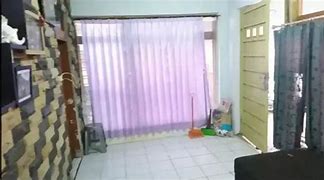
Stacking Query - Menjalankan Lebih Dari Satu Query
Metode ini memanfaatkan fitur untuk menjalankan lebih dari satu query dalam satu perintah. Input yang dimasukkan diakhiri dengan tanda ; yang menyatakan query pertama sudah selesai dan ada query selanjutnya.
Input ini jika berhasil akan menghapus tabel bernama users dan dapat merusak keseluruhan sistem.
Chống chỉ định dùng thuốc Aminopoly Injection
Không dùng thuốc Aminopoly Injection cho các đối tượng sau:
Chống chỉ định là tuyệt đối. Điều này có nghĩa là không vì bất cứ lý do gì mà có thể dùng thuốc Ceftarol trong trường hợp bị chống chỉ định. Mọi quyết định về liều lượng và cách dùng thuốc Aminopoly Injection cần phải tuân theo chỉ định từ bác sĩ.
Aminopoly Injection là thuốc gì?
Aminopoly Injection thuộc nhóm thuốc đường tiêu hóa, được bào chế dưới dạng bào chế dung dịch tiêm truyền, quy cách đóng gói chai 500ml.
Thành phần có trong thuốc Aminopoly Injection bao gồm:
Lysine là một loại axit amin có cấu tạo của protein. Ngoài ra, Lysine còn được gọi là axit L-2,6-diaminohexanoic, Lisina, Lys, Lysine Hydrochloride. Lysine đã được đưa vào sử dụng trong y học và thay thế cho một số loại như một phương tiện hiệu quả để giúp điều trị các vết loét lạnh do virus herpes simplex gây ra.
SQL Injection Cheat Sheet
Berikut ini beberapa contoh input yang bisa digunakan untuk melakukan SQL Injection. Gunakan Cheat Sheet ini untuk melindungin website buatan kamu, dan bukan untuk melakukan penyerangan!
Metode ini sudah dicontohkan pada contoh di atas. Input yang dimasukkan diakhiri dengan syntax comment sehingga query menjadi terpotong.
Input ini memotong query target dan mengubah makna dari query tersebut.
Tidak Melakukan Validasi Input
SQL Injection biasanya terjadi karena developer tidak membersihkan input atau masukan dari pengguna. Sebagai developer yang baik, kita harus selalu curiga terhadap input yang berasal dari pengguna. Kita tidak boleh percaya begitu saja apa yang diberikan oleh pengguna.
What is SQL injection?
SQL injection involves the insertion of harmful SQL code by a malicious actor into the input fields of your web application, including forms, URLs, or cookies. They aim to execute this code on your database server, potentially leading to data theft, corruption, or deletion, along with unauthorized access, privilege escalation, or code execution. Any web application utilizing a relational database, such as Joomla, can be susceptible to SQL injection.
Liều dùng thuốc Aminopoly Injection
Liều tham khảo ở người lớn:
Lưu ý: Liều thuốc Aminopoly Injection trên chỉ mang tính chất tham khảo. Liều thuốc Aminopoly Injection cụ thể tùy thuộc vào thể trạng và mức độ diễn tiến của bệnh. Để có liều Aminopoly Injection phù hợp, người bệnh cần tham khảo ý kiến bác sĩ hoặc chuyên viên y tế.
Selecting Wise Usernames and Passwords
When it comes to choosing your Joomla admin usernames and passwords, exercise prudence. Avoid utilizing "admin" as your username and opt for a complex password. Interestingly, this is among the most effective methods to bolster your Joomla security, and paradoxically, it's one of the simplest.Employing a strong password is imperative for robust Joomla security. Ensure that your login password possesses sufficient length (between 8 to 14 characters) and includes a combination of letters, numbers, and symbols. Remember that passwords are case-sensitive, so incorporating both uppercase and lowercase letters adds an extra layer of strength. Additionally, it's advisable to establish a routine of changing admin passwords at least once a month.
Kegunaan SQL Injection
Bagi penyerang, SQL Injection digunakan sebagai salah satu cara untuk mengakses database korban. Di dalam database ini biasanya berisi data-data yang penting. Jika penyerang berhasil masuk ke database dan memiliki akses yang cukup, penyerang dapat mengambil data-data ini.
Data-data ini bisa digunakan untuk di jual kembali di pasar gelap, melakukan blackmailing kepada seseorang, atau kejahatan keuangan seperti carding dan pinjaman online ilegal.
Limit Access to the Joomla Admin Backend
Prudent restriction of access to the Joomla admin backend is essential, given its sensitive nature. You can achieve this by implementing IP filtering, and the same can be applied to other critical Joomla directories following these steps:1: Begin by creating a .htaccess file if it's not already present in the directory you intend to safeguard.2: Insert the following code into the .htaccess file:Order Deny, AllowDeny from allAllow from xx.xx.xx.xx3: Replace "xx.xx.xx.xx" with the specific IP address from which you wish to permit access.Consider employing security extensions that offer IP filtering capabilities to restrict access to the Joomla admin backend, along with other features that enhance your Joomla website's security.
As there will forever be a level of risk, the ongoing nature of Joomla security necessitates regular evaluation of potential attack vectors. Website proprietors and administrators must consistently enhance their website security to minimize the likelihood of a breach.Ultimately, we trust that you discover this article pragmatic and beneficial. If you require assistance in fortifying your Joomla website, please feel free to share your inquiries in contact form, and we will gladly provide our assistance.
I recently had an SQL injection exploit on my site and since I'm not well versed in this subject I was hoping someone here might have some suggestions as to how it could've happend and, if possible, how to prevent it.
Win2008/IIS7.5 (patched up-to-date)
The exploit inserted new URLs (with marketing/spam titles) into the JoomSEF component. Clearing the cache seems to have got rid of them. Otherwise, there were no apparent damage to the existing URL-mappings or the site as a whole.
The injected URLs typically looked like this:
index.php?option=com_doc&sid=-1 union select 0,1,2,concat(0x217e,password,0x3a,username,0x3a,usertype,0x7e21),4,5,6,7,8,9,10,11 from #__users where gid=25 or gid=24--&task=view
I went through the "list", changed all passwords etc. I also ran Webcruiser a number of times to analyse the site. On a couple of occations it found one or two pages that had "cookie SQL injection vulnarability. Otherwise there were no other vulnerabilities.
So my questions are as follows:
1. What do you think happend here? Ie. is there a way to determine how the hack was able to access to the JoomSEF SQL tables?
2. Likewise: any way to determine which component was at fault here?
Could it be related to the Joomla core bug?:
3. Any suggestions on how to prevent a similar attack, say configuration issues. I am aware that there are newer versions of Joomla, MySQL, PHP and JoomSEF (although the changelog at Artio doesn't mention any security fixes in v4.5.2).
4. Probably a tough question to answer: That it seems to have been limited to JoomSEF, and that it only inserted new URLs (ie. didn't scramble the existing ones), can we speculate on the general security on the site? Ie. did the hacker simply hit a wall and gave up?
I would be very greatful for any insights or suggestions into this. Thank you.























